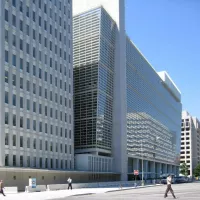Chad is a landlocked country in North-Central Africa, bordered by Libya, Sudan, Central African Republic, Cameroon, Nigeria, and Niger. Its capital and largest city is N'Djamena, home to 1.6 million of its 19 million residents. As the fifth-largest country in Africa, Chad covers approximately 1,300,000 square kilometers.
1900: Creation of Territoire Militaire
In 1900, French colonial expansion led to the creation of the Territoire Militaire des Pays et Protectorats du Tchad.
1929: Introduction of Cotton Production
In 1929, France introduced large-scale cotton production in Chad.
1952: Bébalem Massacre
Tensions between farmers and elites culminated in the 1952 Bébalem massacre by colonial authorities.
August 1960: Chad Granted Independence
On 11 August 1960, Chad was granted independence with the PPT's leader, François Tombalbaye, as its first president.
1960: Introduction of New Religions
After Chad's independence in 1960, the Baháʼí and Jehovah's Witnesses faiths were introduced, considered "new" religions in the country.
1960: Chad Obtains Independence
In 1960, Chad obtained its independence under the leadership of François Tombalbaye.
1964: Chari Jazz Formation
In 1964, the music group Chari Jazz was formed, marking the beginning of Chad's modern music scene.
1965: Civil War Begins
In 1965, Muslims in the north, led by the National Liberation Front of Chad (FRONILAT), began a civil war.
1975: Tombalbaye Overthrown and Killed
In 1975, Tombalbaye was overthrown and killed, but the insurgency continued.
1978: Chadian-Libyan Conflict Erupts
In 1978, the Chadian–Libyan conflict erupted due to the Libyan invasion.
1979: Foreign Investors leaving Chad
Foreign investors left Chad between 1979 and 1982 because of civil war.
1979: Rebel Factions Take Capital
In 1979, rebel factions led by Hissène Habré took the capital, and all central authority in the country collapsed.
1982: Foreign Investors leaving Chad
Foreign investors left Chad between 1979 and 1982 because of civil war.
1987: Limited Paved Roads
In 1987, Chad's transport infrastructure was severely underdeveloped due to civil war, with only 30 kilometers (19 mi) of paved roads.
1987: Libyan Army Forced off Chadian Soil
In 1987, the French-supported president, Hissène Habré, evoked a united response from Chadians and forced the Libyan army off Chadian soil.
1987: End of Libyan Invasion
In 1987, the Libyan invasion ended with a French military intervention (Operation Épervier).
1990: Hissène Habré Overthrown
In 1990, Hissène Habré was overthrown by his general Idriss Déby.
1990: Déby Overthrows Habré
In 1990, Idriss Déby overthrew Hissène Habré.
1990: Forest Area in Chad
In 1990, forest cover in Chad was around 6,730,000 hectares (ha).
1991: Modernisation of Chad National Army
In 1991, with French support, a modernisation of the Chad National Army was initiated.
1992: Legalization of Opposition Parties
In 1992, Chad legalized opposition parties, ending the dominance of Déby's MPS as the sole legal party.
1995: Increased Interest in Chadian Music
In 1995, Chad saw greater interest in modern music, fostering the distribution of CDs and audio cassettes featuring Chadian artists.
1996: Déby Wins Presidential Election
In 1996, Idriss Déby easily won a competitive presidential election after Chad approved a new constitution by referendum.
1999: Oil Drilling Rights
In 1999, Franco-Chadian relations were strained by the granting of oil drilling rights to the American Exxon company.
2000: Low Telephone Density
In 2000, Chad had only 14 fixed telephone lines per 10,000 inhabitants, which was one of the lowest telephone densities in the world.
2000: Foreign Investment in Oil Sector
In 2000, major direct foreign investment in Chad's oil sector began, boosting the country's economic prospects.
2000: Supreme Court and Constitutional Council operational
In 2000, the Supreme Court and the Constitutional Council became fully operational as the highest jurisdictions in Chad's legal system.
2000: Archaeological Sites
Some of the most important African archaeological sites are found in Chad, mainly in the Borkou-Ennedi-Tibesti Region; some date to earlier than 2000 BC.
2002: Wildlife Inventory
As of 2002, there were at least 134 species of mammals, 509 species of birds (354 species of residents and 155 migrants), and over 1,600 species of plants throughout Chad.
2003: Darfur Crisis Spills Over
From 2003, the Darfur crisis in Sudan spilt over the border, destabilising Chad and straining resources due to the influx of Sudanese refugees.
2003: Anthologie de la littu00e9rature tchadienne Published
In 2003, Ahmat Taboye, Chad's sole literary critic, published his Anthologie de la littu00e9rature tchadienne to further knowledge of Chad's literature.
2003: Oil Exploitation Begins
In 2003, oil exploitation began in Chad, leading to hopes for peace and prosperity, but instead, internal dissent worsened, and a new civil war broke out.
2003: Movement for Justice and Democracy Clash
In 2003, the Movement for Justice and Democracy in Chad clashed with government forces in an attempt to overthrow President Idriss Déby.
2003: Oil Becomes Primary Export
Since 2003 crude oil has become the country's primary source of export earnings.
2003: Influx of Sudanese Refugees
Since 2003, 230,000 Sudanese refugees have fled to eastern Chad from war-ridden Darfur, generating increased tensions among the region's communities.
2003: Decentralization Process
The subdivision of Chad in regions came about in 2003 as part of the decentralisation process, when the government abolished the previous 14 prefectures.
2004: Road Network Improvement
By 2004, successive road rehabilitation projects had improved Chad's road network to 550 kilometers (340 mi).
2005: Postponement of Communal Elections
Communal elections scheduled for 2005 in Chad have been repeatedly postponed.
2005: Removal of Term Limits
In 2005, Chad's constitutional term limits were removed, allowing the president to remain in power beyond the previous two-term limit.
2005: Habré Placed Under House Arrest
In 2005, attempts to prosecute Habré led to his placement under house arrest in Senegal.
2005: Boycott of Constitutional Referendum
In 2005, opposition parties and human rights organizations supported a boycott of the constitutional referendum that allowed Déby to stand for re-election for a third term.
2005: Chad Civil war
The estimate of the military budget dropped after the end of the Civil war in Chad (2005–2010).
January 2006: World Bank Suspends Loan Program
In January 2006, the World Bank suspended its loan program to Chad after the Chadian government reduced the amount of oil revenues earmarked for development projects.
April 2006: Rebel Attack on Capital
In April 2006, rebel forces stormed Chad's capital but were ultimately repelled.
July 2006: Memorandum of Understanding Signed
On 14 July 2006, the World Bank and Chad signed a memorandum of understanding, under which the Government of Chad commits 70% of its spending to priority poverty reduction programmes.
2006: Prior Censorship on Media
At the end of 2006, the Chadian government began to enact a system of prior censorship on the media, despite constitutional protections for liberty of expression.
2006: Déby Wins Third Mandate and Increased Ethnic Violence
In 2006 Déby won a third mandate in elections that the opposition boycotted and ethnic violence in eastern Chad increased.
2006: Boycotted Presidential Elections
In 2006, the presidential elections were considered a formality due to a boycott by the opposition, who deemed the polls a farce.
2006: Military Budget Estimate
The CIA World Factbook estimated Chad's military budget to be 4.2% of GDP, or about $300 million, in 2006.
2007: Peace Treaty
In 2007, a peace treaty was signed that integrated United Front for Democratic Change soldiers into the Chadian Army.
February 2008: Humanitarian Crisis Concerns
In February 2008, following the Battle of N'Djamena, the UN expressed extreme concern that the humanitarian crisis would negatively impact aid delivery to half a million people. It was feared that the situation could escalate into a humanitarian catastrophe if sufficient aid wasn't provided. Save the Children also suspended activities due to aid worker killings.
2008: Rebel Forces Fail to Take Capital
In 2008 rebel forces attempted to take the capital by force, but failed.
2009: Poverty Statistics
In 2009, the United Nations' Human Development Index ranked Chad as the seventh poorest country in the world, with 80% of the population living below the poverty line, and the GDP per capita was estimated at US$1,651.
January 2010: Agreement for Harmony Between Chad and Sudan
On 15 January 2010, an agreement for the restoration of harmony between Chad and Sudan marked the end of a five-year war, leading to the return of Chadian rebels, the opening of the border, and the deployment of a joint force.
September 2010: Mobile Phone Penetration Rate
In September 2010, the mobile phone penetration rate in Chad was estimated at 24.3% over a population of 10.7 million.
2010: A Screaming Man Wins Jury Prize
In 2010, Mahamat-Saleh Haroun's feature film A Screaming Man won the Jury Prize at the Cannes Film Festival. Haroun became the first Chadian director to win an award in the main Cannes competition.
2010: Religious Demographics
In 2010, Pew Research estimated that 52–58% of Chad's population was Muslim, while 39–44% was Christian.
2010: UFR Rebel Group Size
In 2010, the UFR rebel group reportedly had a force estimating 6,000 men and 300 vehicles.
2010: Chad Civil war
The estimate of the military budget dropped after the end of the Civil war in Chad (2005–2010).
2011: Military Budget Estimate
In 2011, the World Bank estimated Chad's military spending to be 2.0% of GDP after the end of the civil war (2005-2010).
2012: Muslim Denominations
According to a 2012 Pew Research survey, 48% of Muslim Chadians identified as Sunni, 21% as Shia, 4% as Ahmadi, and 23% as non-denominational Muslim.
May 2013: Coup Attempt Foiled
In May 2013, security forces in Chad foiled a coup against President Idriss Déby that had been in preparation for several months.
September 2013: Partner Sought for Fiber Optic Technology
In September 2013, Chad's Ministry for Posts and Information & Communication Technologies (PNTIC) announced that the country would be seeking a partner for fiber optic technology.
2013: Chad Airports
As of 2013, Chad had an estimated 59 airports, but only 9 had paved runways. The international airport serves the capital and provides regular nonstop flights to Paris and several African cities.
2013: Habré Charged with War Crimes
In 2013, Habré was formally charged with war crimes committed during his rule.
2015: Population Projection
Chad's national statistical agency projected the country's 2015 population between 13,630,252 and 13,679,203, with 13,670,084 as its medium projection. Based on the medium projection, 3,212,470 people lived in urban areas and 10,457,614 people lived in rural areas.
2015: Forest Ownership
For the year 2015, 100% of the forest area in Chad was reported to be under public ownership.
May 2016: Habré Found Guilty of Human-Rights Abuses
In May 2016, Hissène Habré was found guilty of human-rights abuses, including rape, sexual slavery, and ordering the killing of 40,000 people, and sentenced to life in prison.
2017: Mid-Year Population Assessment
The agency assessed the population as at mid 2017 at 15,775,400, of whom just over 1.5 million were in N'Djaména.
2018: Forest Landscape Integrity Index
Chad had a 2018 Forest Landscape Integrity Index mean score of 6.18/10, ranking it 83rd globally out of 172 countries.
2018: Renaming of Regions to Provinces
In 2018, Chad's regions were renamed provinces, dividing the country into 23 provinces.
2019: Increase in Poor People
In 2019, the number of poor people in Chad increased to 6.5 million, up from 4.7 million in 2011.
2020: Muslim Majority
In 2020, the ARDA estimated that the vast majority of Muslim Chadians belonged to the Sunni Sufi brotherhood Tijaniyah.
2020: Forest Cover in Chad
In Chad forest cover is around 3% of the total land area, equivalent to 4,313,000 hectares (ha) of forest in 2020, down from 6,730,000 hectares (ha) in 1990. In 2020, naturally regenerating forest covered 4,293,000 hectares (ha) and planted forest covered 19,800 hectares (ha).
April 2021: President Déby Killed
In April 2021, President Idriss Déby was killed by FACT rebels, and the Transitional Military Council led by his son Mahamat Déby assumed control of the government, dissolving the Assembly.
April 2021: Death of Déby
On 20 April 2021, Chad's army announced the death of Déby, following an incursion in the northern region by the FACT group, during which the president was killed amid fighting on the front lines.
2021: Failed State Listing
In 2021, Chad was listed as a failed state by the Fund for Peace (FFP) and ranked seventh-highest in the Fragile States Index. Transparency International ranked Chad 164th among 180 countries in the Corruption Perceptions Index for 2021.
July 2023: Date Tag
Entry with the date of July 2023
August 2023: UAE Foreign Aid Inauguration
In August 2023, the UAE foreign aid was inaugurated in the Chadian city of Amdjarass, continuing efforts to provide assistance to the Chadian people and support humanitarian aid to Sudanese refugees.
2023: V-Dem Democracy Indices Ranking
According to the 2023 V-Dem Democracy indices, Chad is ranked 16th lowest in electoral democracy worldwide and 4th lowest in Africa.
2023: Contribution to MINUSMA mission
As of 2023, Chad's last year in the MINUSMA mission, 1,449 Chadian soldiers were deployed there.
May 2024: Mahamat Idriss Déby Sworn In as President
On 23 May 2024, Mahamat Idriss Déby was sworn in as President of Chad after the disputed 6 May election.
2024: Military Personnel Statistics
As of 2024, Chad was estimated to have 33,250 active military personnel, with the majority in the Ground Forces. Chad also ended its military cooperation agreement with France in 2024.
2024: Global Hunger Index Ranking
In the 2024 Global Hunger Index, Chad ranks 125th out of the 127 countries with sufficient data to calculate 2024 GHI scores, having a score of 36.4.
2025: End of French Military Presence
In 2025, the French military handed over its last base in Chad to the Chadian military, ending its presence in the country, which it had since 1960.
Mentioned in this timeline
Sudan officially the Republic of the Sudan is a country...
Africa is the second-largest and second-most populous continent home to...

The World Bank is an international financial institution offering loans...
France officially the French Republic is primarily located in Western...

Music is a cultural universal involving the arrangement of sound...

War is defined as an armed conflict involving the armed...
Trending
8 seconds ago Strategy Adds 3,015 BTC as Bitcoin Holds Steady; Doubles Down on Crypto
1 hour ago Western Governments Rush to Repatriate Stranded Travelers Amid Middle East Conflict
2 hours ago Julian Reese Joins Washington Wizards on Two-Way Contract, Making NBA Debut.
2 hours ago Missouri Pick 3 and Powerball: Winning Numbers Revealed for February 28, 2026

2 hours ago Kaiya Wynn's departure: Senior Day snub as 'breaking point' from Lady Vols.

3 hours ago Anhelina Kalinina Runner-Up at Antalya WTA 125, WTA Megarasay Hotels Open 2
Popular

Hillary Diane Rodham Clinton is a prominent American politician lawyer...

Ken Paxton is an American politician and lawyer serving as...

Jesse Jackson is an American civil rights activist politician and...

Jim Carrey is a Canadian-American actor and comedian celebrated for...

Bill Clinton served as the nd U S President from...

XXXTentacion born Jahseh Dwayne Ricardo Onfroy was a controversial yet...